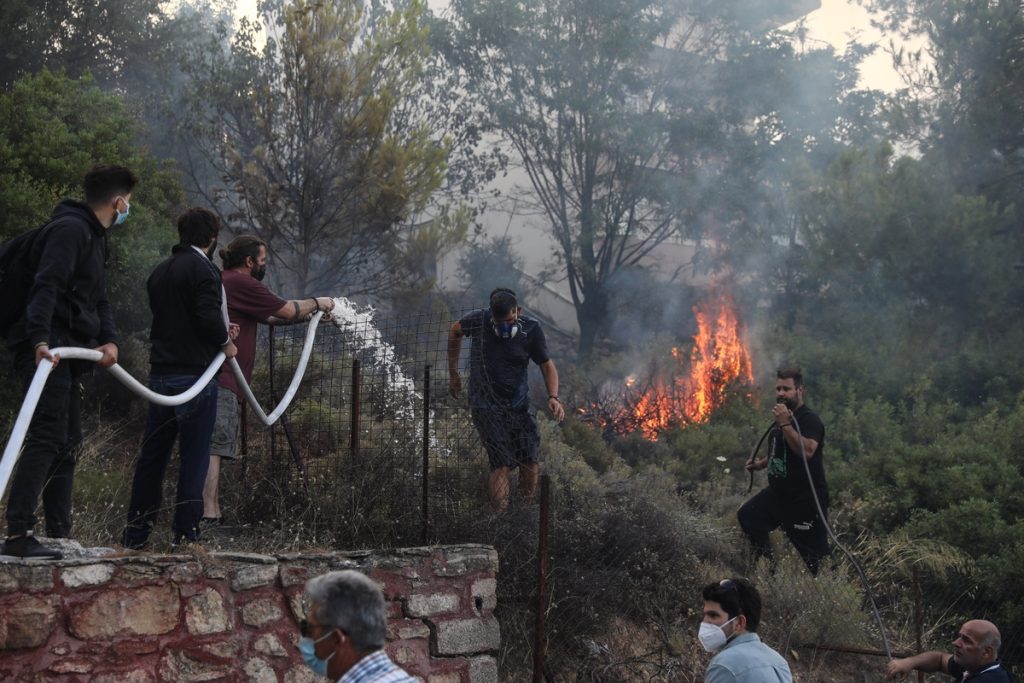By Aris Ravanos
Greece is reliving the nightmare of major wildfires, but it does not learn from its mistakes.
“Spectators at the same play” is the title of a song by famed singer Vasilis Papakonstantinou.
Indeed, once again we find ourselves watching the same play, as we helplessly and fatefully look on at raging wildfires, feckless and unable as citizens to take substantial action.
It is always the same old story. Every year we observe the same spectacle, with incalculable consequences.
We have experienced the tragedies of the deadly wildfires in Mati in Attica, and years ago in Ilia prefecture.
What is our country doing wrong?
One may cite many factors, but every successive government cannot barricade itself behind the contention that there was preparation, planning, and a strategy and that what is to blame is the weather, strong winds, high temperatures, and in the final analysis climate change.
Is the state doing what it should?
A new ministry was created in order to manage such crises. Did it do what it should have?
Has the state sufficiently emphasised and paid attention to crisis management and has it created an effective strategy?
Certainly, there are responsibilities that must be assigned.
That will happen once the current wildfire crisis is over, and them we shall discuss if and how many firefighters were hired.
Does local government also bear responsibility? Most certainly, and it too will be assigned, as many forests were not cleared.
Citizens are also responsible for clearing their yards, if they have taken care to protect their homes against future wildfires. That, too, will be discussed in due course.
It is a given that beyond the responsibility for preparing competent state services, climate change is a reality and there must be a comprehensive shift of the current environmental policy.
In the The Economist’s “The World Ahead 2022” issue, which shows us through articles and analyses where the world is heading, the Editor-in-Chief cited the issues that should be on our radar this year, and said that if fires, heatwaves, and floods are increasing at a rapid rate, then policymakers do not appear to have a sense of urgency in confronting climate change.
That is food for thought – after the fires are put out – in the discussion regarding responsibilities and how we can better organise so that we do not once again feel like “Spectators at the same play”, whether during winter snowfalls and flooding or summer wildfires, and so that we do not see the same mistakes repeated.





